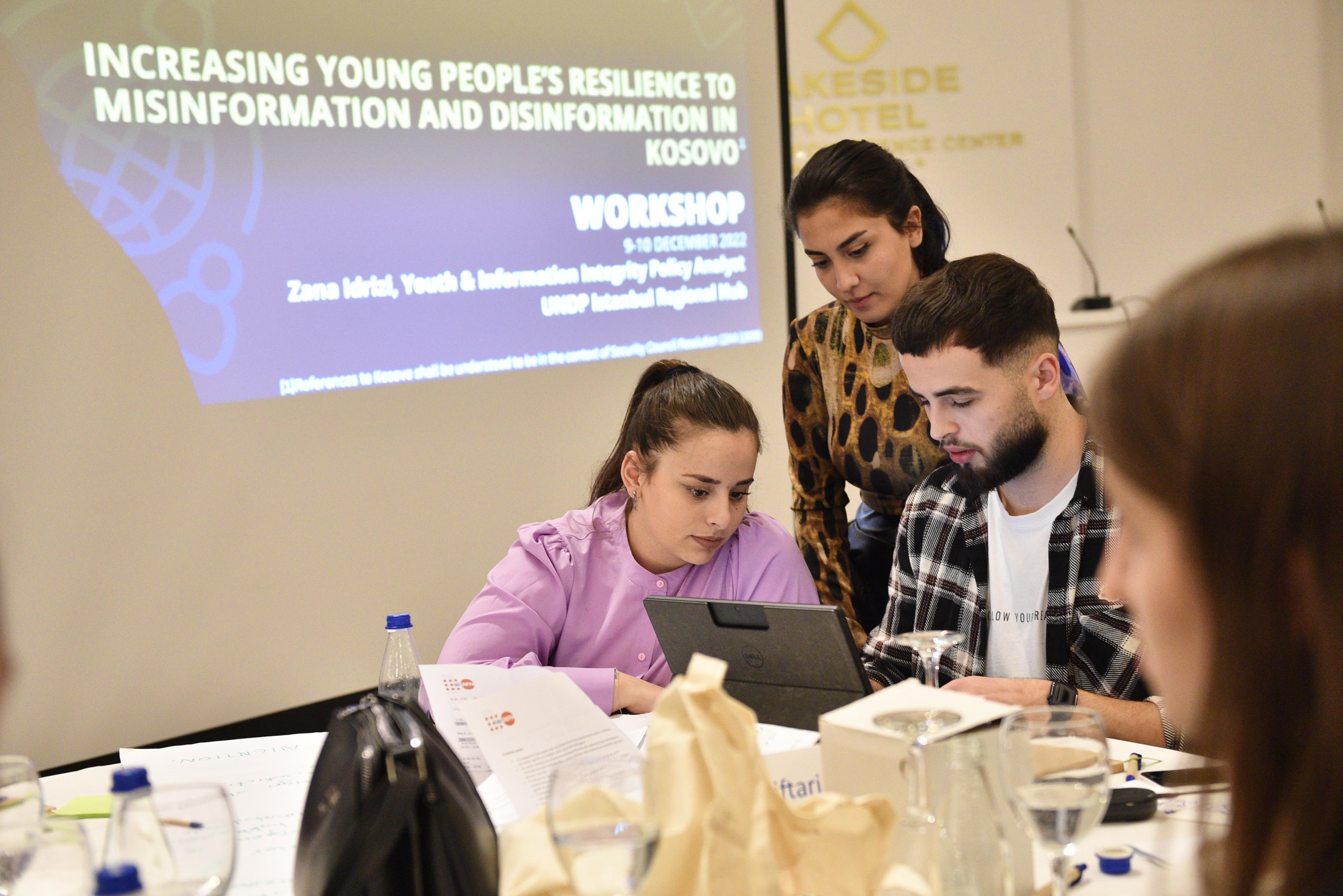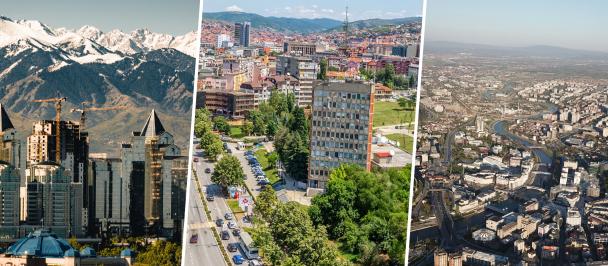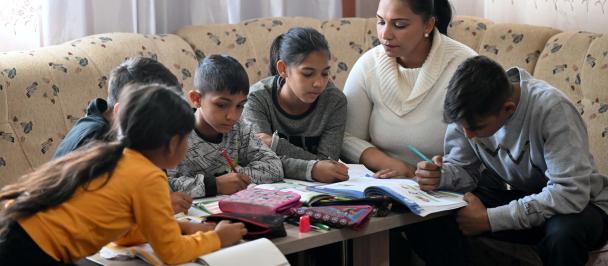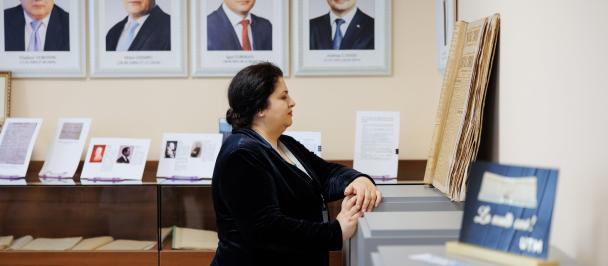Navigating the landscape of increased disinformation in Europe and Central Asia
May 16, 2023

In Ukraine, UNDP has been raising awareness about misinformation through various programs that targeted the infosphere around the COVID-19 pandemic and the current war.
The spread of misinformation and disinformation is an increasingly pressing issue across the world, with growing concern about its impact on democracy, peace, and human rights. The Europe and Central Asia Region is no exception.
The 2022 elections in Bosnia and Herzegovina were marred by the spread of false information about political candidates, their affiliations and their policies. Gendered disinformation has been used as a tool to undermine democratic values in Moldova. In Ukraine, the war has been accompanied by a flood of propaganda and disinformation from its onset.
While the rise of social media has made it easier than ever for false information to spread like wildfire, there are deeper issues at play that have contributed to the rise of disinformation in our society. Widening polarization and the erosion of trust in institutions and media have turned the public away from traditional sources of information. Online sources are filling the void, to worrying effect. At the same time, state and non-state actors exploit technologies and social media algorithms to disseminate disinformation to further their own agendas. Whether its political actors seeking to influence elections or special interest groups trying to sway public opinion, disinformation and other harmful content have become common tools.
In recent years, we've witnessed a range of negative consequences in this region, including the erosion of trust in democratic institutions, threats to democratic processes and increased social polarization among communities. Sensitive topics like ethnicity, religion and history are often exploited in disinformation campaigns, leading to increased tensions and social conflicts. But there is still a lack of understanding of the patterns of disinformation in the region and how to effectively counter them.
UNDP’s recently published Mapping and Analysis of Efforts to Counter Information Pollution in Europe and Central Asia Region report analyzes the disinformation trends across the region and how various actors are responding to them. Here are our three main findings:
1. Disinformation: A shared battle across the region
The report paints a troubling picture of the information ecosystem in the region. Despite a wide diversity in terms of political systems, media landscapes and civil society development, the countries and territories in Europe and Central Asia all face remarkably similar challenges when it comes to disinformation. One pressing issue is the legal ambiguity surrounding the definition of disinformation, making it difficult to strike a balance between combating false information and protecting basic human rights like freedom of expression and access to information. What’s worse, loosely framed legislation is being weaponised to silence the very people who are trying to address the information crisis, including journalists and human rights activists.
2. There are strong local efforts to fight misinformation
Media and civil society have responded with solutions to fight against misinformation. Central Asia’s BRYCA promotes critical thinking and strengthens young people’s resilience against disinformation and hate speech online. To provide impartial analysis during the military hostilities in 2020, JAM news conducted a fact-checking initiative through which Azeri and Armenian journalists monitored and verified Armenian/Azeri government statements, media and social media. In Georgia, a group of eight civil society organizations joined forces to establish the Information Integrity Coalition to “identify, monitor and research sources of disinformation”. These initiatives, however, should be greatly strengthened through even better cooperation.
3. Uncovering the hidden impact of disinformation during crises, particularly on women
As recent crises in the region have shown, disinformation plays a significant role in driving political intentions and distorting public opinion. But with resources going to crisis recovery, there is still insufficient research and evidence on crisis-related disinformation, hindering effective response and prevention. Furthermore, women, particularly those in public life, are disproportionately targeted by disinformation, yet there is little data on this important aspect.

Young people discuss how to combat misinformation at a workshop hosted by UNDP Kosovo*.
There is an urgent need for cross-border and regional cooperation to combat disinformation. The constantly evolving and complex landscape of disinformation highlights the need for regional platforms to network, share information and learn the latest trends and tactics. In cases of cross-border tensions for example, multilingual media initiatives could be developed to facilitate the free flow of information. With diverse perspectives and experiences, we can collectively develop strategies to build local communities’ resilience to disinformation. For example, UNDP's project, 'Youth 4 Inclusion, Equality & Trust’ supports a regional approach to promoting constructive narratives as a countermeasure to the prevailing divisive public discourse. The project works locally in six Western Balkan countries & territories, while also creating synergies at regional level.
Prioritizing the creation of a healthy information ecosystem should be the focus of donor programming. Promoting information integrity requires a sustained effort, and the international community must work closely with local NGOs to strengthen their capabilities and support their sustainability. Filling information gaps in poorly served areas is also important, and donors should invest in local and community media and journalism, and prioritize programs that involve individuals from marginalized social groups, including women, ethnic minorities, and those residing in rural and remote areas. By working together to develop a collective strategic vision for this work, donors can minimize duplicative programming and improve the efficacy of counter-disinformation efforts.
More advocacy targeting social media companies is needed. The design and misuse of social media is by now a well-established factor for the spread of disinformation. Yet, in the region, there is insufficient effort and investment from social media companies. They should engage with local organizations to develop fact-checking projects and have independent oversight boards and ombudsman. They must ensure equal investment in policy enforcement across all languages and market shares, and be more open to sharing relevant data, with additional vigilance during times of heightened tensions. Researchers must have access to data to understand the scope of the problem and evaluate the effectiveness of social media's solutions. Open channels of communication with the UN system should also be established during or before a crisis to enable swift action against harmful content.
From gendered disinformation to propaganda, false information is rampant throughout the region as a tool to manipulate public opinion. However, there is hope. Our report on countering disinformation highlights not only the enabling landscape and trends on information pollution but also positive practices that are already fighting it. Cross-border and donor/international community/local NGO cooperation to build public resilience (especially among marginalised communities), support independent media and reinforce state-citizen dialogue, can break this cycle of disinformation, create more aware communities, and promote a culture of trust and transparency.
UNDP offices in the region are already developing programs with local communities to fight disinformation. In Kosovo* and North Macedonia, we have held youth workshops addressing the negative impacts of mis- and disinformation, hate speech and divisive narratives, and ways to mobilize to become digitally literate citizens. In Ukraine, UNDP promotes networking between the government and civil society through the engagement of CSOs in tackling fake news, disinformation and propaganda caused by the war in Ukraine. Jointly with UNICEF in Ukraine, we carried out research that provided insight into the spread of disinformation about the pandemic online, main themes of false narratives, and gave recommendations for the government, fact-checkers, influencers, and the public.
UNDP will be hosting several events at the upcoming Nobel Prize Summit: Truth, Trust and Hope. Join the conversation.
* References to Kosovo shall be understood to be in the context of Security Council Resolution 1244 (1999)

 Locations
Locations





